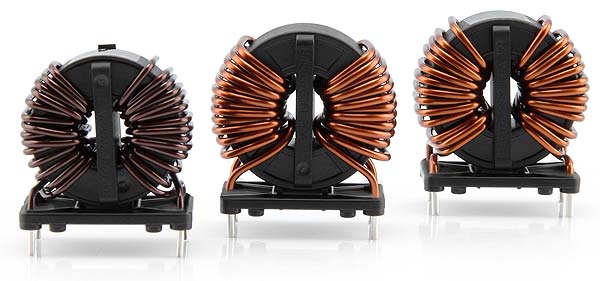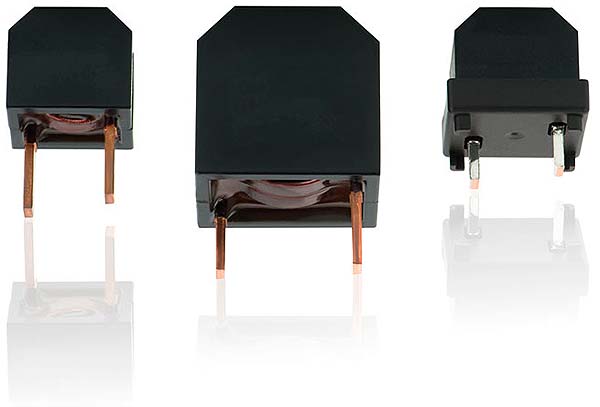 The European Commission’s CO2 limit values represent a challenge for the automotive industry that cannot be met with conventional combustion engines. Fast and cost-efficient hybridization is required to achieve these targets. This also requires new electrical components such as inverters and DC-DC converters. One of the major challenges in inverters is the very limited space available for which the very compact filter chokes are an advantageous solution.
The European Commission’s CO2 limit values represent a challenge for the automotive industry that cannot be met with conventional combustion engines. Fast and cost-efficient hybridization is required to achieve these targets. This also requires new electrical components such as inverters and DC-DC converters. One of the major challenges in inverters is the very limited space available for which the very compact filter chokes are an advantageous solution.
 The chokes constructed with powder pot cores offer a very low leakage inductance, resulting in outstanding EMC behavior. Operation is briefly possible up to 300 Apeak at up to 150 °C ambient temperature. The high mechanical requirements on components in the limited installation space of the inverter are reliably met with tolerances of only ± 0.3 mm; automated production ensures a constant quality and cost level.
The chokes constructed with powder pot cores offer a very low leakage inductance, resulting in outstanding EMC behavior. Operation is briefly possible up to 300 Apeak at up to 150 °C ambient temperature. The high mechanical requirements on components in the limited installation space of the inverter are reliably met with tolerances of only ± 0.3 mm; automated production ensures a constant quality and cost level.
Future projects such as electric air-conditioning compressors, electric anti-roll stabilization and electric turbochargers offer further CO2 savings potential, as these services are only called up in the vehicle when required (power on demand). Here, the common mode chokes with nanocrystalline VITROPERM® cores offer application advantages such as excellent attenuation properties over a wide temperature range, small size and flat temperature characteristics. The large standard portfolio also includes solutions for high currents or high voltages.
“Our AEC-Q Automotive-certified VITROPERM chokes, with their excellent attenuation combined with high permeability and saturation magnetization, are the ideal solution for reliably complying with the constantly increasing safety regulations with increasing on-board network requirements for EMC,” says Achim Kipper, Product Manager Automotive at VAC.


